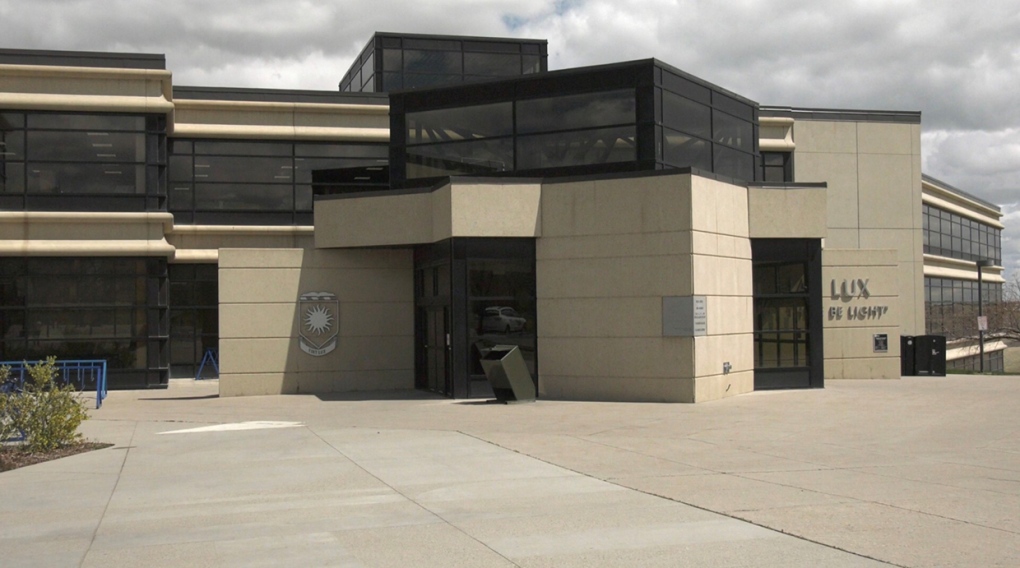'It's just about having a support system': University of Lethbridge receives open letter asking for flexibility in course delivery
 Students will begin returning to the University of Lethbridge campus on Sept.8 for the first day of classes.
Students will begin returning to the University of Lethbridge campus on Sept.8 for the first day of classes.
In one week's time, students will start classes on campus and in-person at the University of Lethbridge for the fall semester.
However, as the fourth wave of COVID-19 ramps up with the Delta variant spreading across the province, some at the school want to make sure back up plans are in place.
"If we've learned anything through the entire COVID experience, it's that we should learn from what's happened in the past," said Dan O'Donnell, the President of the U of L's Faculty Association (ULFA).
"If our plan is to be in-person, and then just suddenly pivot, that's not really a plan… That's a way of introducing chaos."
O'Donnell is one of a number of Lethbridge instructors concerned about the school's upcoming plan.
 Dan O'Donnell, University of Lethbridge Faculty Association president
Dan O'Donnell, University of Lethbridge Faculty Association president
They are having a full return to campus life for everyone which was developed and decided back in February.
Unfortunately, a lot has changed since then which is why the faculty association, Graduate Students' Association (GSA) and Public Service Alliance of Canada (PSAC) wrote an open letter addressed to the U of L President, Mike Mahon.
They're calling for more flexibility when it comes to the course delivery according to the GSA's president, Priyanka Dutt.
"It's to protect our students and to protect our staff and all the people that are working so hard to ensure that we have a great in-person experience," said Dutt.
"It's just about having a support system. A back-up for those people to ensure that they're not being faced with consequences."
The hope is to be able to move courses online, should cases increase, without affecting student learning in any way.
The letter includes recommendations put forward to President Mahon and the U of L:
- That academic penalties for absences and late assignments related to the COVID-19 health emergency be waived;
- That any substantial changes in the method of teaching (e.g. moving from in-person to online) do not require, as a condition of evaluation or grading, students to attend class at different times—with the exception of asynchronous material, to be available by the scheduled class time—add instructional hours, or require additional purchases;
- That any substantial changes in teaching methods be communicated to students with reasonable notice and consultation;
- That all substantial changes in the method of delivery be communicated by the instructor of record to their Department Chair, Dean, and the Accommodated Learning Centre as a matter of professional courtesy.
- That course outlines provide the https://www.ulethbridge.ca/campus-life/student-services link to assist students in accessing resources for their well-being and academic success; and
- An invitation for students to inform the instructor if any change in method of teaching creates difficulty of access.
These recommendations are very important to all groups involved in the writing of the letter, including the University of Lethbridge Graduate Association (ULGA).
"Having flexibility in sick leave and sick notes will just ensure that everybody's feeling comfortable staying home when they need to," said Jackson Ham, Chair for the ULGA.
Rachel Stark is the regional representative for the PSAC and believes strongly in making minimal changes to courses should they move online.
"Ensuring that there is no additional costs for the undergraduates to attend classes or to switch modalities on a dime is really important to ensure that we are providing the best level of education that we can."
UNIVERSITY RESPONDS
In a statement made to CTV News regarding the letter, the U of L had this to say:
"We are aware of the letter and respect the concerns raised as we enter the fall semester.
"As campus has begun to reopen, each step in our reopening plan has been guided by a commitment to the health and safety of our entire campus community, including faculty, staff, students and external community users."
"The measures we have taken, which include but are not limited to mandatory masking and a rapid testing requirement, exceed provincial health directives. As we finalize our protocols for the rapid testing plan and begin to welcome our students back to campus, our decisions will again be grounded in creating a campus environment that promotes the physical and mental well-being of our community."
"The COVID-19 situation is dynamic. As the semester advances, we will continue to monitor the protocols in place, with future decisions guided by the best interests of our entire campus community."
O'Donnell wanted to emphasize the fact that the ULFA, along with everyone involved, did not write the letter to fight with the University on this, but are merely looking to address their own issues to help lead a safe path forward for everyone.
"We absolutely realize that it's in all of our interests to provide the safest, best, most on campus experience possible," he told CTV News.
"The commitments that we make in this letter are to help the University and the administration deliver that in-person experience."
Students will begin returning to campus on Sept.8 for the first day of classes.
CTVNews.ca Top Stories

Southern California wildfire destroys many structures; governor declares state of emergency
A wildfire whipped up by extreme winds swept through a Los Angeles hillside dotted with celebrity residences Tuesday, burning homes and forcing the evacuation of tens of thousands of people.
Trump is open to using 'economic force' to acquire Canada; Trudeau responds
Prime Minister Justin Trudeau said 'there isn’t a snowball’s chance in hell that Canada would become part of the United States,' on the same day U.S. president-elect Donald Trump declared that he’s open to using 'economic force' to acquire Canada.
A B.C. mom's real-life nightmare and the search to find her trafficked daughter
A Vancouver island mom shares the story of what happened to her teenaged daughter – and a warning for other parents about sex trafficking.
Liberal leadership hopeful Frank Baylis noncommittal on eliminating consumer carbon tax
Liberal leadership hopeful Frank Baylis says eliminating the consumer carbon tax alone will not 'solve the affordability issue for Canadians.'
Canadian naval vessel shadowed by Chinese war ship in the East China Sea
CTV National News is on board the HMCS Ottawa, embedded with Canadian Navy personnel and currently documenting their work in the East China Sea – a region where China is increasingly flexing its maritime muscle. This is the first of a series of dispatches from the ship.
Patient dies in waiting room at Winnipeg hospital
An investigation is underway after a patient waiting for care died in the waiting room at a Winnipeg hospital Tuesday morning.
Limit coffee-drinking to this time window to lower early death risk, study suggests
Drinking coffee has repeatedly been linked with better heart health and prolonged life. But the benefits of coffee consumption could depend on when you drink it, new research has found.
B.C. 'childbirth activist' charged with manslaughter after newborn's death
A British Columbia woman who was under investigation for offering unauthorized midwifery services is now charged with manslaughter following the death of a newborn baby early last year.
Man who exploded Tesla Cybertruck outside Trump hotel in Las Vegas used generative AI, police say
The highly decorated soldier who exploded a Tesla Cybertruck outside the Trump hotel in Las Vegas used generative AI including ChatGPT to help plan the attack, Las Vegas police said Tuesday.


































